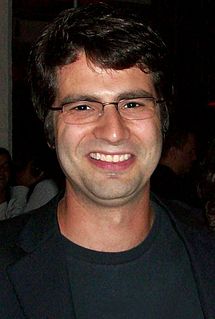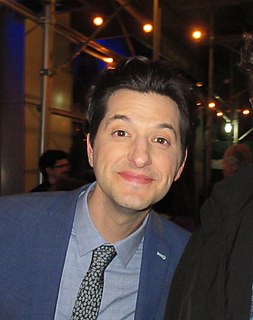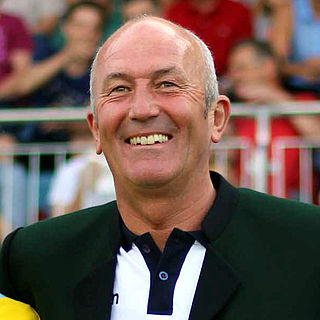A Quote by Roger Ebert
Dr. Leonard Shlain, chairman of laparoscopic surgery at California Pacific Medical Center, said they took some four and five year-olds and gave them video games and asked them to figure out how to play them without instructions. Then they watched their brain activity with real-time monitors. At first, when they were figuring out the games, he said, the whole brain lit up. But by the time they knew how to play the games, the brain went dark, except for one little point.
Quote Topics
Related Quotes
I believe that if we don't make moves to get people who don't play games to understand them, then the position of video games in society will never improve. Society's image of games will remain largely negative, including that stuff about playing games all the time badly damaging you or rotting your brain or whatever.
If I play a video game, I have to get through the whole thing. Like, when the new 'Resident Evil' comes out, I have to sit and do the whole thing. It will consume my life. I'm at a point where I don't have much time to play around anymore, so I don't really get started on the games if I won't be able to finish them.
There's been nothing proven that violence in video games has an impact. As a parent though, and I'm a parent for a 20-year-old, for a 16-year-old and for a 10-year-old, and so, you know, I make choices everyday for my kids as to what games I think is appropriate for them to play. And, you know, in the end it's up to the parents, it's up to the gamers themselves working with their parents, if they're under 21, to make the smartest choice for the games they play.
Someone asked me 'What's the biggest thing you'll take out of the Premier League?' I said that you can't relax. I think you can go from having a great run of games - you can go four, five, six unbeaten - and turn a corner and go into a run of seven or eight games without winning. That's how difficult it is for the so-called smaller clubs.
Children need to move to develop their brain; it's a natural urge. That's why boys will run after a ball and play soccer despite how many video games are available to them, and they can't help themselves from building with Lego bricks as well. They want to be creating something that's uniquely their own.
I want gaming to be something that everybody does, because they understand that games can be a real solution to problems and a real source of happiness. I want games to be something everybody learns how to design and develop, because they understand that games are a real platform for change and getting things done. And I want families, schools, companies, industries, cities, countries, and the whole world to come together to play them, because we’re finally making games that tackle real dilemmas and improve real lives.



































